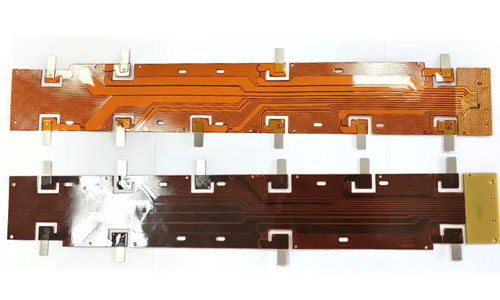The shift towards electrification of the automotive industry has driven significant advancements in battery technology, particularly in the development of new energy vehicle (NEV) battery packs. A crucial aspect of these packs is the battery management system (BMS) and the integration of various components enabling efficient power distribution and communication within the pack. This is where the Combined Charging System (CCS) integrated busbar solution comes into play, offering a streamlined approach to energy management in electric vehicle (EV) battery packs.

Introduction to New Energy Vehicle Battery Packs
Battery packs in new energy vehicles are designed to store and supply electrical energy to power the electric motors. These packs are sophisticated units composed of numerous individual cells connected in series and/or parallel to achieve the desired voltage and capacity. Managing these cells to ensure optimal performance, safety, and longevity is the role of the BMS, which relies heavily on the physical infrastructure within the pack, such as busbars.
The Importance of Busbars in Battery Packs
Busbars are thick strips of conductive material, usually copper or aluminum, that are used to distribute power within the battery pack. They play a pivotal role in connecting individual cells or modules, conducting high currents, and ensuring minimal power loss across connections. With the scaling-up of battery capacities and the need for faster charging times, the efficiency and design of busbars have become increasingly important.
CCS Integrated Busbar Solutions
The integration of CCS within busbars provides a uniform interface for high-voltage interconnection and charging, optimizing the flow of electricity throughout the battery pack. The CCS standard, initially developed for the fast-charging infrastructure, outlines the specifications for connectors, communication protocols, and safety requirements.
By merging CCS design principles into the busbar infrastructure, manufacturers can achieve a more compact, efficient, and safer power distribution network. This integration offers several key advantages, such as:
1. Streamlined Design: Integrated busbars reduce the complexity of the battery architecture by minimizing the number of connections and components, which can lead to a lighter and more cost-effective solution.
2. Enhanced Safety: By adhering to the stringent standards set by CCS, the integrated busbars ensure robust safety mechanisms are in place to protect against overcurrent, overcharging, and thermal incidents.
3. Improved Charging Times: With a standardized charging interface and enhanced conductivity, the charge times can be significantly reduced, making EVs more practical for users who require quick turnaround times.
4. Scalability: The modular nature of the CCS integrated busbars allows for flexibility in pack design. Manufacturers can easily scale capacity or voltage requirements without having to reengineer the entire system.
5. Better Thermal Management: Properly designed busbars that integrate with CCS can also help in achieving better thermal management. Efficient heat dissipation is crucial, as it prevents overheating and prolongs the life of the battery cells.
6. Increased Reliability: Consistent and high-quality connections between cells and modules facilitate reliable battery pack performance, essential for consumer trust and acceptance of NEVs.
Challenges in Implementation
Despite the clear benefits, the implementation of integrated busbars with CCS does pose challenges. These include the need for precise manufacturing, the management of added complexity in the BMS, and ensuring compatibility with a wide range of battery cells and pack designs. Additionally, the ongoing evolution of standards like CCS means continual adaptation and testing.
Conclusion
The adoption of integrated busbar solutions with the Combined Charging System represents a significant step forward in the engineering of new energy vehicle battery packs. Such an integration aids in advancing EV efficiency, safety, and user convenience, ultimately contributing to the broader acceptance and success of electric vehicles. As this technology continues to evolve, we can expect even more innovative solutions to emerge, driving the future of the automotive industry towards a more sustainable and electrified future.
Contact: Pamela
Phone: +86 189 6365 3253
E-mail: info@industryprocess.com
Whatsapp:+86 189 6365 3253
Add: Yajing Industrial Park, No. 59 Shuangjing Street, Weiting Town, Suzhou Industrial Park
We chat
